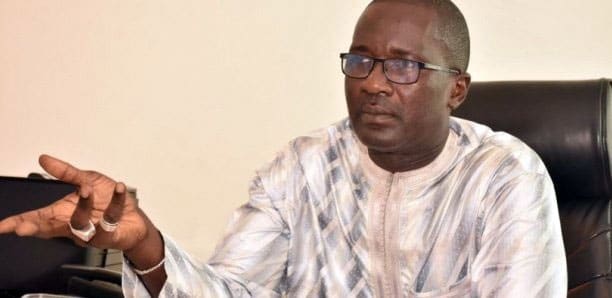Attacks against the Constitutional Council: The UMS in Battle Mode

The Union of Senegalese Magistrates (Ums) vigorously condemns the establishment of a Parliamentary Commission of Inquiry whose mission is to hear the magistrates who are members of the Constitutional Council, Cheikh Tidiane Coulibaly and Cheikh Ndiaye, accused by the Freedom Parliamentary Group, democracy and change of “dubious connections” and “conflict of interest”, following the invalidation of Karim Wade’s candidacy. The Ums considers that the approach is “contrary to the principle of the separation of powers and constitutes a dangerous precedent for the independence of Justice”.
The Union of Senegalese Magistrates (Ums) is not unmoved by the parliamentary initiative of the Liberty, Democracy and Change Group, bringing together MPs from the Pds and their allies from the Wallu Coalition. Thus, the Ums was quick to condemn this approach, which will lead to the establishment of a parliamentary commission of inquiry whose mission will be to hear the magistrates Cheikh Tidiane Coulibaly and Cheikh Ndiaye, members of the Constitutional Council. The latter are accused by deputies of the Liberty, Democracy and Change Parliamentary Group of “dubious connections” and “conflict of interest”. A reaction from parliamentarians which follows the invalidation of the candidacy of Karim Meïssa Wade for the Presidential election.
This attitude pushed the Ums to provide “its unwavering support to the colleagues concerned”. The association “vigorously condemns such an approach which violates the principle of the separation of powers and constitutes a dangerous precedent for the independence of Justice”.
The structure indicates in its document: “In accordance with articles 92, 93 of the Constitution and 9 of the Organic Law relating to the organization and functioning of the Superior Council of the Judiciary, the Ums wishes to provide the following clarifications: -No parliamentary commission has jurisdiction to hear a magistrate, especially for facts likely to be classified as criminal, within the exclusive jurisdiction of the criminal courts; -The Superior Council of the Judiciary is the disciplinary body for magistrates; -Except in cases of flagrante delicto, members of the Constitutional Council can only be prosecuted with the authorization of the Council; -The decisions of the Constitutional Council are not subject to any recourse. »
The Ums did not limit itself to these clarifications, since it “calls on all magistrates to unite around their colleagues and reminds political actors of all stripes whose vocation is to lead the State, the important need to respect the institutions of the Republic ».
In Le Quotidien N°6276, the First President of the Court of Appeal of Dakar, Amady Diouf, delivered his truths to the critics of Justice, not without warning of the harmful effects of these acts on the vitality of democracy. And the First President of the Court of Appeal of Dakar strongly supported, during the inauguration of the new courthouse in Rufisque, Diamniadio: “The latest news gives us a striking example of the level of incivility and moral failure which the courts face. One of our most eminent jurisdictions is being dragged through the mud without gloves by actors who aspire to eminent functions in the country. Contempt for judges, who should never be laughed at or taken pleasure in, is a sign of moral bankruptcy and the beginning of a collapse of democracy.”
“It must be emphasized that we exercise our offices in a context where republican institutions, particularly Justice, are subject to unjustified attacks and criticism that fuels and maintains partisan positions and a profound misunderstanding of the way Justice operates,” ecalled President Diouf. Not without recalling the obligation of professionals to render justice in compliance with applicable law and in compliance with the rules.
By Mamadou T. DIATTA / mdiatta@lequotidien.sn

